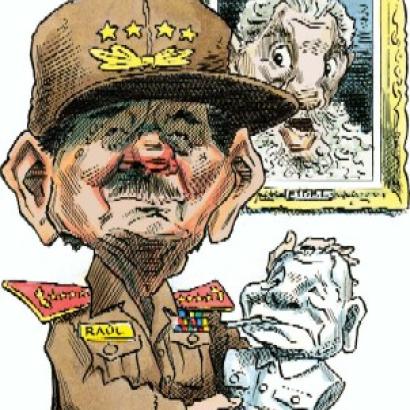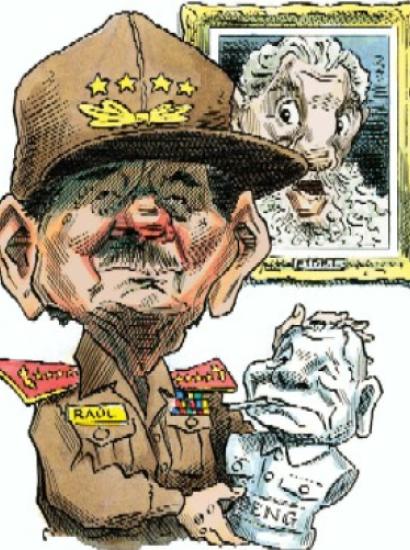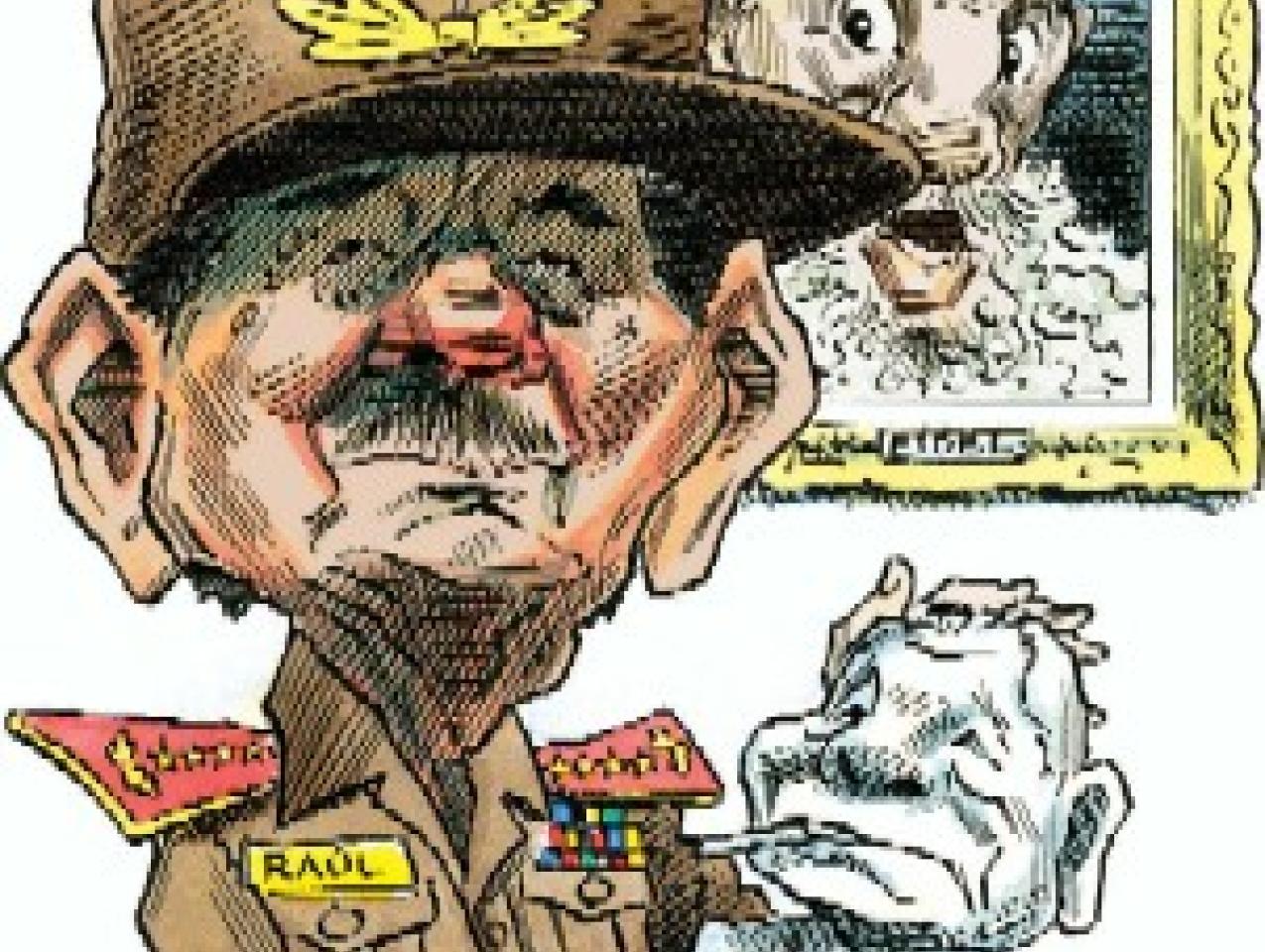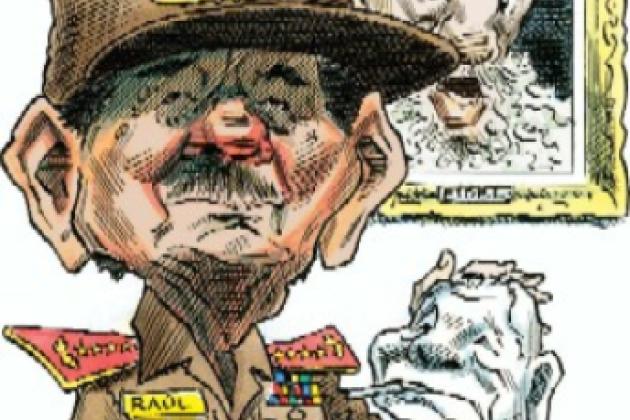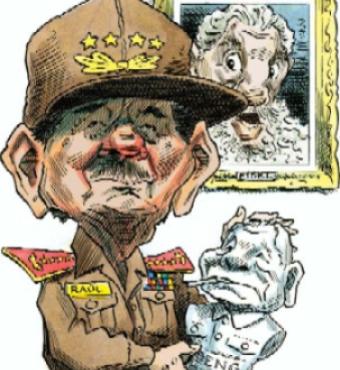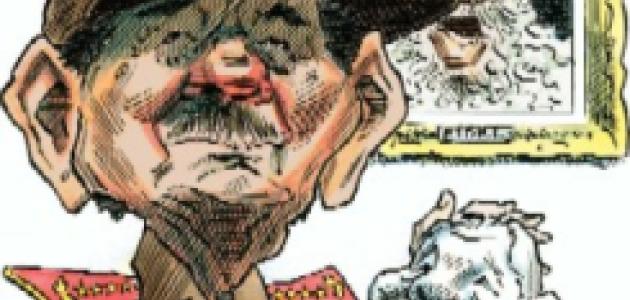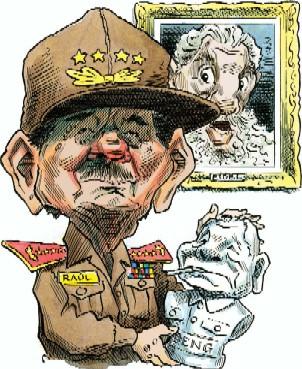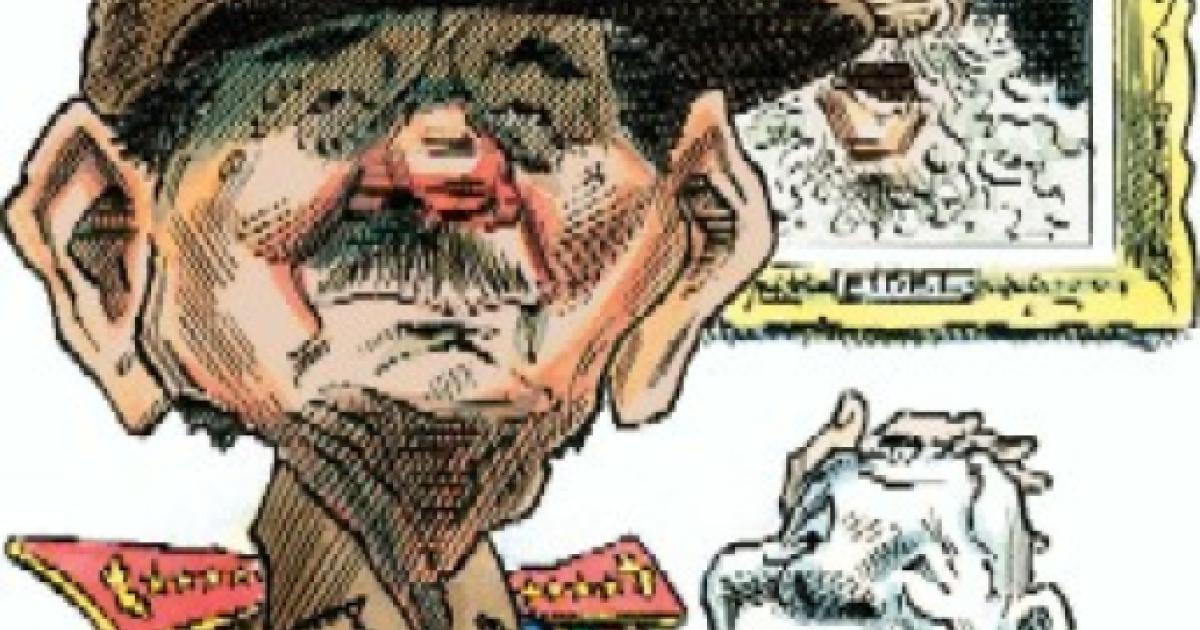- International Affairs
The time has finally come for us to begin thinking of Fidel Castro in the past tense. Well, almost, for the past may yet weigh heavily on Cuba’s future, and the heavier it weighs the worse that future will be.
Even if Fidel survives his recent surgery and takes office again, the transition has begun and his brother Raúl has taken power in a long-planned takeover. Commentators are already speculating on every possible outcome, and many U.S. politicians are suggesting all sorts of direct and indirect involvement.
For Raúl it has to be sweet, though at the same time unsettling. So many decades as No. 2, and though often influential behind the scenes, in the end Raúl always conceded to his brother’s will no matter how nonsensical his orders were. But time is not on Raúl’s side.
At best, his window of opportunity is likely to be fairly brief, because he is 75 years old and because he will be challenged on all sides in a country that is seething with frustration, fear, repressed resentments, and diametrically opposing goals. The questions are how openly and how successfully the challenges will be made. And when will they become too much to handle? No one knows, but we suspect that for the immediate future, Raúl may have his chance to rule the country. If he fails, he will become No. 0.
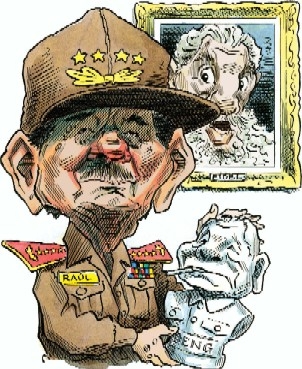
If Cuba is to have a chance to enter the modern world, it will have to transcend Fidel. The elder Castro has long been larger than life, but so was Mao Zedong in China before he died and was replaced by Deng Xiaoping. Deng became China’s present and future, and the question now is whether Raúl (or anyone else) dares or will be able to become Cuba’s Deng.
Serious democracy, however, is not likely to be on the immediate agenda, no matter how much we and many Cubans may want it.
Although Raúl has none of Fidel’s charisma, he has his own, long-hidden, strengths. Unlike his brother, he deals with his subordinates in a collegial fashion. This will be essential in the months ahead, for he must have the loyalty of those who work under him and that of other top leaders who are likely to emerge in a ruling junta.
| Time is not on Raúl’s side: He is 75 years old and he will be challenged on all sides in a country that is seething with frustration, fear, and resentment. |
Raúl lacks his brother’s Machiavellian qualities, which further complicates his life because, while he must move quickly to improve Cuba’s broken economy, he lacks Fidel’s commanding strengths to pull it off.
Some signs indicate that Raúl understands what has to be done and has the talents to do it. As head of the military, he downsized that organization, making it the most efficient and business-oriented organization in the country.
Raúl will need to accomplish “simple” things such as bringing the people more potable water, electricity, food, and medicine in addition to offering them a future.
After Fidel’s corpse is cold, Raúl may restore the successful peasant markets he promoted more than a decade ago and which Fidel crushed; transform Cuba’s predatory regulatory bureaucracy, which suffocates small businesses in particular; and even relegalize dollar holdings.
Cubans will increasingly reflect on how modern history has left them behind, in large part because of Fidel’s quack economics. Cuba’s past half-century has been one of the most mismanaged periods in history. By the time Cubans begin focusing on that, Raúl had better be showing them that he is undertaking systematic and far-reaching economic reforms such as those that have brought rapidly increasing prosperity to so many in China and Vietnam.
How should the United States react to this supremely delicate moment? Already there has been too much glib talk about how the United States will provide the guidance and whatever else the Cuban people need in their march forward to freedom. The goal is honorable, but we should cool the rah-rah rhetoric and ill-considered unilateral actions. Far better to work with Europeans and Latin Americans as Cubans find their own way.
| Serious democracy is not likely to be on the immediate agenda, no matter how much we and many Cubans may want it. |
Any overt U.S. role will ultimately undermine the individual or group it supports, as demonstrated in early 2003 when the Castro regime imprisoned dozens of pro-democracy dissidents we had supported. Cuba’s transformation is likely to come step by step. If we try to control the change, we can expect to see a lot of violence on TV much closer to home than Iraq. Alas, we may see some of it anyway.








